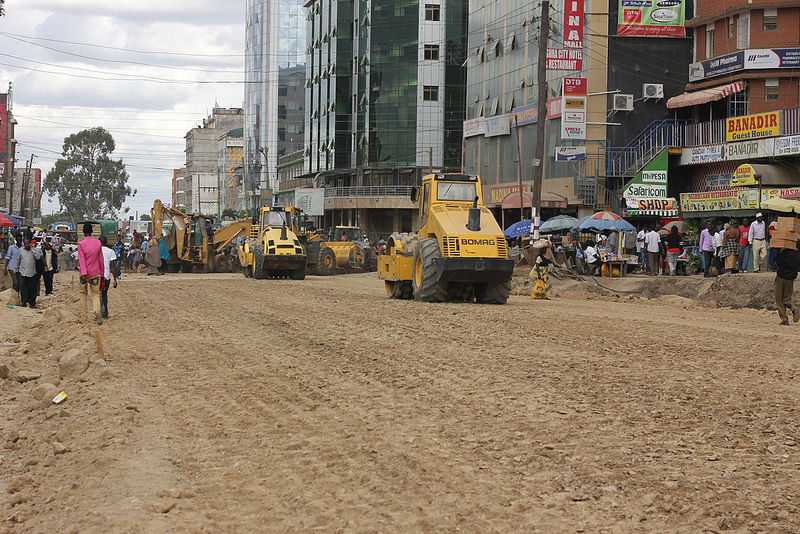PART THREE: Written by: Mohammed Dahir Ahmed
REVIEW AND ANALYSIS OF THE ECONOMIC PILLAR ASSUMPTIONS
The writers of the plan took the assumption, that hard infrastructure is the only prerequisite for national development in the expense of the soft infrastructure development, where the set up of enabling environment for investment is prioritesed,as well as the establishment and enactment of macroeconomic policies mainly fiscal and monetary polices. Further soft infrastructure development, calls for the modernization of the administrative and financial systems of the government and the country as well, where property rights, enforcement of commercial contracts, rule of law, and speedy business registrations are prevalent in the country. Today most of the internationally accepted standards as far as easy of doing business is absent in our country, although the NPD mentioned in few pages of its three hundred pages, plans of establishing macroeconomic policies, financial management reform, central bank reform and the introduction of commercial banking landscape, although 90% of those reforms have not being implemented.Overemphasising hard infrastructure development in the expense of soft infrastructure sheds light the lower intelligence threshold of those spearheaded the development of this plan. Iam not downplaying the importance of hard infrastructure to economic development, but I believe hard infrastructure without soft infrastructure development is like having roads and cars without a traffic law and this pattern will not attract investment into the country and make progressive economic development path. According to World bank recent Macroeconomic data analysis, Somaliland has very low levels of investment, ranked approximately 180th in the world for gross fixed capital formation as a percentage of GDP.
On the other hand, the plan presented the innumerable development needs of the country vis-a- visa the limited financial resources which could be raised internally and externally, which required strict prioritization based on the projects overall national development contribution, financial resource availability and opportunity cost of doing this project, rather then starting projects on the basis of political and regional considerations. This implies not implementing projects which were not within our resource availabilities and not pouring money on one project as far as equitable resource allocations are concerned.
As far as balance of payments is concearned,Somaliland exports livestock, hides and skins and gums. It imports all most every thing needed in the country such as Sugar,Rice,Wheat,Flour,Cookingoil,Pasta,Dates,Biscuites,Clothes,Cars,Soap,Building material,
Fuel and others including Khat. According to the World bank recent data on Somaliland, trade deficit (Export-Import) was approximately $496 million, which was financed through a combination of remittances and external aid. Moreover the five year development estimates annual Diaspora remittance upto $400 million, that means 80% of the trade deficit in Somaliland is financed by the Diaspora remittance and the remaining 20% via external aid. To utilize this staggering Diaspora contribution for the development of the country, the national development planned to establish Diaspora development trust fund and private investment funds for the Diaspora among other things.
Undoubtedly,diaspora contribution is discernible in closing up the deficit trade gap. Then, the question is what has created on the first place this huge trade imbalance and how it can be embarked upon and used Diaspora contributions in other development paradigms?. The trade deficit could only be tackled in reducing imports and increasing exports through the implementation of import substitution policy, which means producing locally the materials you import from overseas by establishing light industries and manufacturing. To realize this, you do not need to establish Diaspora development trust/ private investment funds or to dictate the Diaspora what to do or where to investment, rather it is required from you to furnish the platform and establish a business and investment enabling environment, where people in the Diaspora can come together, pool resources together by establishing partnerships and shareholding companies. This requires implementation and reforming company laws to make sure shareholder protection, corporate governance, requirement of submission of annual audited accounts, board of directors regulations. Similarly,diaspora needs to get funding in case their ventures require more capital, which means both conventional and Islamic banking choices should be available in the country as 98% of 50 plus Islamic countries in the organization of Islamic conference(IOC) provide in their respective countries both Islamic and conventional banking products. Morover,investors in manufacturing require allocation of an industrial zone, which the plan mentions, but not so far allocated for.
By: Mohammed Dahir Ahmed
Senior financial consultant and independent political analyst.

Leave a Reply